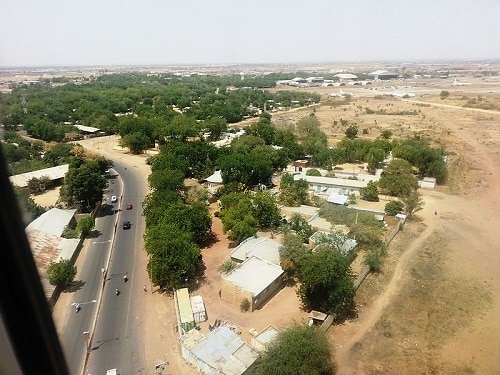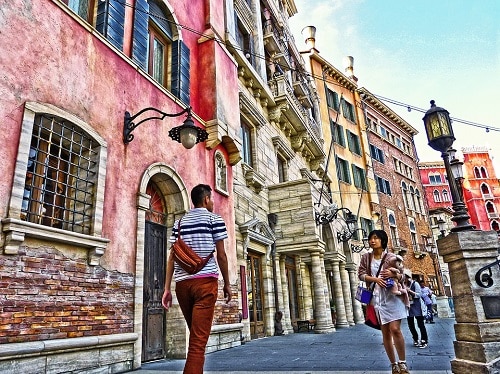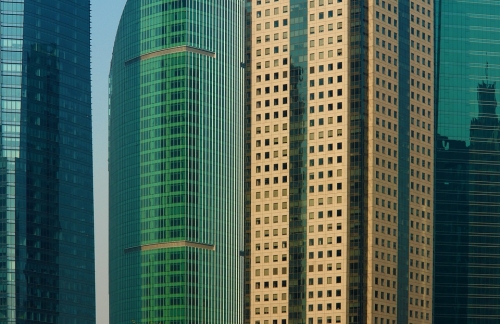For many ambitious professionals looking to become expats, being offered a dream assignment is a marvellous opportunity but the drawbacks may entail being posted to one of the world’s most expensive cities for expats to live in.
Despite the hefty rise in the cost of living, moving is still a worthwhile and rewarding decision to make, and if an employer is helping with a generous expat package then it becomes a realistic opportunity.Even for those expats who are not enjoying a generous employer funded package, there are still opportunities in some of the most expensive cities.
There are regular surveys to pinpoint the world’s most expensive city and one of the most popular indicators is put together by consulting firm Mercer who help employers move employees overseas.
And growing numbers of employers are looking to move employees overseas in a bid to boost their success with many aiming their efforts into building a presence in Asia which has many of the world’s most successful and fastest-growing economies.
As Mercer’s Mario Ferraro explains: “Asian cities are among the world’s most expensive locations for deploying expatriates. This has not, however, hindered employers from relocating talent since the region offers growth potential so the demand for the best talent remains high.”
However, with the economic slowdown in China’s economy and weaker growth around the world, many international employers have been cutting back on the benefits they are offering to their expat staff who relocate overseas, including their housing allowances.
As Mr Ferraro says, while many employers are reducing large expat packages there is a scarcity of local talent in the most expensive locations which means expats willing to relocate there are being offered tempting packages to sweeten the move.
In their latest Cost of Living report, Mercer says Hong Kong is now the world’s most expensive city for employers to send staff on assignment.

To put this into perspective, how about paying $12,000 a month to rent a three-bedroom house? Or $8 for a cup of coffee, $5 for a hamburger meal or $128 for a pair of jeans? That’s how much life in Hong Kong for an expat can cost.
However, many people argue that local people are not paying those sorts of figures, so why should an expat? Once the report was published various media outlets examined how cheaply an expat can live in Hong Kong and the answer was, unsurprisingly, much more cheaply than those headline figures.
With a two-bedroom apartment costing $6,800, most expats looking at moving to the former British colony would be forgiven for thinking twice about an assignment there.
Expats in Hong Kong agree that the rents are ‘astronomical’ and still rising quickly but for those intent on living there without employer support for housing then there is cheaper property available further north in the New Territories and on the Kowloon side.
One reason for the dearer rents is the prices being quoted are for Hong Kong Island which is where the financial district is located along with most of the expat social scene.
Expats living in Hong Kong say another way to reduce outgoings is to avoid supermarkets aimed at expats and shop where the locals shop including in ‘wet markets’ that sell fresh fish and meat. Expats there also recommend eating street food and using taxis which are cheap.
Rents are not just a problem in Hong Kong, according to HSBC, who also point to cities such as Singapore, New York and London as offering a major expense for the expats living there.

The bank also points out that from its research, just one in three expats have an accommodation allowance from an employer.
The head of HSBC’s offshore banking arm, Dean Blackburn, said: “It’s important that those who relocate research the living costs for their host country and understand the benefits they can receive from an employer.”
Another problem for expats heading to expensive destinations is that they may be drawn into leading a lifestyle that’s more expensive than they can pay for.
One independent financial adviser in Dubai, Keren Bobker, told one news outlet that she regularly comes across expats living beyond their means who have fallen for the hype that they must have a big house, designer clothes and eat in expensive restaurants.
Dubai is the Middle East’s most expensive city and ranks 21st in the Mercer survey. It is expensive for expats to live there with housing rents being high in comparison with other cities and states in the region.
Ms Bobker pointed out that Dubai is promoted as being a ‘glamorous place’ with the main ‘hobby’ for those living there apparently being to spend lots of money.
Other potential high costs for expats moving overseas include healthcare, regular trips home and school fees. For example, families in the UAE who do not receive employer support for their child’s education could be spending $10,000 every year for a school place.
Many employers in the Middle East have reportedly been scaling back on the financial packages they offer expats because the low price of oil is affecting many economies.

In the Mercer study, behind Hong Kong there’s the usual list of suspects for expensive cities including Geneva, Singapore and Tokyo.
One reason that Singapore is growing in popularity is that it’s an excellent hub for those investors who are expanding into Southeast Asia but it’s the fourth most expensive city in the Mercer survey.
This means there are lots of well-paid opportunities for expats willing to move there.
Having said that, the firm’s report also flags up some surprising results including the fact that the most expensive city in recent years has been Luanda, the capital city of Angola. One reason it has become cheaper is because its currency has weakened but many people will be surprised that living there as an expat is so expensive.
It should come as no surprise that Zurich is in third place while Tokyo has risen to fifth.
However, Kinshasa has rocketed into sixth place, a first top ten appearance for the Democratic Republic of Congo, followed by Shanghai, Geneva and then N’Djamena, the capital of Chad, and in tenth place is Beijing.
Along with currency fluctuations making life as an expat dearer, expats living in Luanda will also be forced pay more for food since nearly all of it is imported and prices are artificially high – this is a similar situation for those who live in N’Djamena despite it being one of the poorest countries in the world.

Renting a three-bedroom house for an expat in Luanda may set them back $14,000 a month thanks to the strength of demand from the booming oil industry there which means expats really will need a supporting financial package from their employer to help pay for housing.
This question of how much an employer should offer, if they are willing to offer financial help, is why Mercer’s survey is published – it is aimed at helping employers to calculate the allowances they need to pay for expats to work overseas.
To do so, Mercer analyses the cost of living for 209 cities around the world with a look at expenses including the costs for transport and housing, clothing, food and entertainment.
However, Mercer is not the only organisation to publish a ranking of the world’s most expensive cities for expats and there’s an interesting report from the Economist Intelligence Unit (EIU).
In their latest survey, they place Singapore in first place for the third year running followed by Zurich, Hong Kong, Geneva and Paris. In sixth place was London, followed by New York with, in equal eighth place, Copenhagen, Seoul and Los Angeles.
The report from EIU compares the expense of living in a city with that to living in New York (and Mercer also uses the US city as its baseline to compare others with) though over the past year or so, according to the report’s researchers, the world’s leading cities have seen a lot of volatility with currency fluctuations, falling commodity and oil prices as well as geopolitical uncertainty.
Alongside the EIU report, real estate firm Savills also regularly examines the world’s most expensive cities and their latest Live/Work Index shows that London is the most expensive city for accommodation costs, followed by New York and Hong Kong and then Paris and Tokyo.
The top 10 of the most expensive cities compiled by Savills which analyses office and residential costs for person sees San Francisco in sixth place followed by Lagos, Singapore, Dubai and Sydney in 10th place.

The firm’s head of research Yolande Barnes says: “The productivity and value of cities to world businesses has an effect on demand and rent costs. The highest ranking are London and New York which are also the most expensive for workers and businesses to occupy. However, when rents rise to the point of unaffordability, world cities can then become a victim of their success.”
Their research reveals that the average cost of accommodating a worker every year in the world’s top 20 cities is $56,855 but there’s a big variety in prices with London costing $112,800 whereas Brazil’s Rio de Janeiro costs just $16,500.
Indeed, the cost to an employer to accommodate an employee in London is more than twice that for Sydney, Chicago and Los Angeles.
It’s this level of cost that makes employers think twice about deploying workers around the world but the figures also deter expats from moving as well but with a business need forcing employers to move their best talent to where they are needed means these costs are the price of doing business.
Indeed, considering that cost of living is a crucial issue for an expat we could take a closer look at living in Geneva, for instance, which features regularly as one as the world’s most expensive cities to live in, but it can also be a cheap and rewarding experience for an expat.
While it’s the financial hub for the country, the economy in Geneva is slowing and nearly 10% of jobs have been lost in the banking industry in the last three years. More are predicted to disappear in the next few years, with Brexit having a particularly big impact.
So while we have looked at the world’s most expensive cities for expats to live in, we should also consider those that offer a high quality of life and a high degree of personal safety; both feature in the Mercer survey and Geneva does well in both categories.
It should also be appreciated that expats in Geneva also enjoy high earnings. Around one in three expats in the city earns more than $200,000 a year (that’s second only to expats living in Hong Kong) and HSBC’s Expat Explorer survey places the city as having the most economic potential for expats moving there.
Although expense is something that must be considered, it is not the be all and end all of deciding whether to live the expat life.
And, as Mercer’s Mario Ferraro points out, the world’s most expensive cities for expats also provide opportunities because local talent is scarce which means employers are more willing to offer tempting packages that help meet these higher than expected living costs to ensure that their best people not only move to these locations but enjoy their time there as well.
Have you lived in an expensive city? Share your thoughts in the comments below, or answer the questions here to be featured in an interview.

